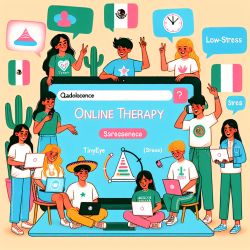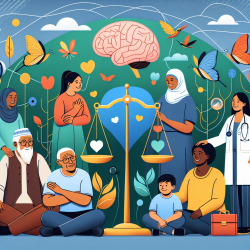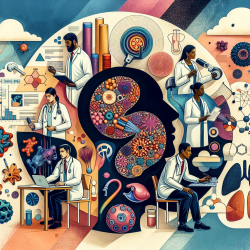The COVID-19 pandemic has fundamentally altered our workplaces, introducing new challenges and exacerbating existing inequalities, especially for individuals with health concerns such as cancer survivors. The research article "Workplace health surveillance and COVID-19: algorithmic health discrimination and cancer survivors" delves into these issues, offering critical insights for practitioners.
COVID-19 health surveillance and algorithmic decision-making (ADM) have created unprecedented amounts of health data, increasing the risk of algorithmic health discrimination. This is particularly concerning for post-treatment cancer survivors who face significant prejudice and health concerns in the workplace. ADM processes, while designed to enhance decision-making efficiency, can inadvertently reinforce biases and discrimination if not properly regulated.
Key Insights for Practitioners:
- Understanding Algorithmic Health Discrimination:
- ADM relies on large datasets and AI to make decisions. Without proper oversight, these systems can unintentionally perpetuate biases against individuals with health conditions.
- Practitioners should advocate for transparent ADM processes and ensure that algorithms are regularly audited to mitigate discriminatory outcomes.
- Enhanced Data Privacy Measures:
- The pandemic has necessitated increased health data collection, often compromising worker privacy.
- Practitioners must champion robust privacy protections to safeguard sensitive health information, ensuring that workers' health data is not misused.
- Inclusive Data Representation:
- To avoid biased ADM outcomes, it's crucial to include diverse data that accurately represents individuals across the health and disability spectrum.
- Practitioners should work towards inclusive data collection practices that reflect the varied experiences of all employees.
- Policy Advocacy and Collaboration:
- The research highlights the need for updated workplace policies and collaborative efforts across impacted groups to combat health inequalities.
- Practitioners can play a pivotal role in advocating for policy changes that promote fairness and equality in the workplace.
- Supporting Cancer Survivors:
- Cancer survivors often face significant challenges in maintaining employment due to health-related biases.
- Practitioners should provide tailored support and accommodations to help cancer survivors navigate these challenges and thrive in their careers.
Encouraging Further Research:
The findings underscore the importance of continued research into the intersection of health surveillance, ADM, and workplace discrimination. Practitioners are encouraged to stay informed about emerging trends and contribute to research efforts that aim to create more equitable workplaces.
To read the original research paper, please follow this link: Workplace health surveillance and COVID-19: algorithmic health discrimination and cancer survivors.










